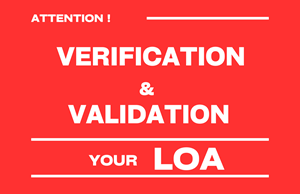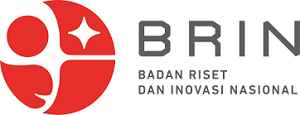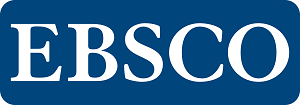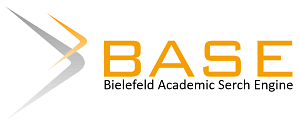Ethical Guidelines
Journal of Science Technology (JoSTec) is a peer-reviewed electronic journal. This statement clarifies the ethical behavior of all parties involved in the act of publishing an article in this journal, including the author, the chief editor, the Editorial Board, the peer-reviewer and the publisher (Inovasi Pratama Internasional. Ltd). This statement is based on COPE’s Best Practice Guidelines for Journal Editors.
Ethical Guideline for Journal Publication
The publication of an article in a peer-reviewed JoSTec journal is an essential building block in the development of a coherent and respected network of knowledge. It is a direct reflection of the quality of the work of the authors and the institutions that support them. Peer-reviewed articles support and embody the scientific method. It is therefore important to agree upon standards of expected ethical behavior for all parties involved in the act of publishing: the author, the journal editor, the peer reviewer, the publisher, and the society.
Inovasi Pratama Internasional. Ltd as the publisher of the JoSTec journal takes its duties of guardianship over all stages of publishing extremely seriously and we recognize our ethical and other responsibilities. We are committed to ensuring that advertising, reprint, or other commercial revenue has no impact or influence on editorial decisions. In addition, the Department of Publisher of Inovasi Pratama Internasional. Ltd and Editorial Board will assist in communications with other journals and/or publishers where this is useful and necessary.
Allegations of Research Misconduct
Research misconduct means fabrication, falsification, citation manipulation, or plagiarism in producing, performing, or reviewing research and writing an article by authors, or in reporting research results. When authors are found to have been involved with research misconduct or other serious irregularities involving articles that have been published in scientific journals, Editors have a responsibility to ensure the accuracy and integrity of the scientific record.
In cases of suspected misconduct, the Editors and Editorial Board will use the best practices of COPE to assist them to resolve the complaint and address the misconduct fairly. This will include an investigation of the allegation by the Editors. A submitted manuscript that is found to contain such misconduct will be rejected. In cases where a published paper is found to contain such misconduct, a retraction can be published and will be linked to the original article.
The first step involves determining the validity of the allegation and an assessment of whether the allegation is consistent with the definition of research misconduct. This initial step also involves determining whether the individuals alleging misconduct have relevant conflicts of interest.
If scientific misconduct or the presence of other substantial research irregularities is a possibility, the allegations are shared with the corresponding author, who, on behalf of all of the coauthors, is requested to provide a detailed response. After the response is received and evaluated, additional review and involvement of experts (such as statistical reviewers) may be obtained. For cases in which it is unlikely that misconduct has occurred, clarifications, additional analyses, or both, published as letters to the editor, and often including a correction notice and correction to the published article are sufficient.
Institutions are expected to conduct an appropriate and thorough investigation of allegations of scientific misconduct. Ultimately, authors, journals, and institutions have an important obligation to ensure the accuracy of the scientific record. By responding appropriately to concerns about scientific misconduct, and taking necessary actions based on evaluation of these concerns, such as corrections, retractions with replacement, and retractions, JoSTec journal will continue to fulfill the responsibilities of ensuring the validity and integrity of the scientific record.
Publication decisions
The editor of the JoSTec journal is responsible for deciding which of the articles submitted to the journal should be published. The validation of the work in question and its importance to researchers and readers must always drive such decisions. The editors may be guided by the policies of the journal's editorial board and constrained by such legal requirements as shall then be in force regarding libel, copyright infringement and plagiarism. The editors may confer with other editors or reviewers in making this decision.
Fair play
An editor at any time evaluates manuscripts for their intellectual content without regard to race, gender, sexual orientation, religious belief, ethnic origin, citizenship, or political philosophy of the authors.
Confidentiality
The editor and any editorial staff must not disclose any information about a submitted manuscript to anyone other than the corresponding author, reviewers, potential reviewers, other editorial advisers, and the publisher, as appropriate.
Disclosure and conflicts of interest
Unpublished materials disclosed in a submitted manuscript must not be used in an editor's own research without the express written consent of the author.
Duties of Reviewers
Contribution to Editorial DecisionsPeer review assists the editor in making editorial decisions and through the editorial communications with the author may also assist the author in improving the paper.
PromptnessAny selected referee who feels unqualified to review the research reported in a manuscript or knows that its prompt review will be impossible should notify the editor and
Content License
 Creative Common Attribution-ShareAlike 4.0 International (CC BY-SA 4.0)
Creative Common Attribution-ShareAlike 4.0 International (CC BY-SA 4.0)
You are free to:
- Share — copy and redistribute the material in any medium or format
- Adapt — remix, transform, and build upon the material
- for any purpose, even commercially.
The licensor cannot revoke these freedoms as long as you follow the license terms.
Under the following terms:
- Attribution — You must give appropriate credit, provide a link to the license, and indicate if changes were made. You may do so in any reasonable manner, but not in any way that suggests the licensor endorses you or your use.
- ShareAlike — If you remix, transform, or build upon the material, you must distribute your contributions under the same license as the original.
- No additional restrictions — You may not apply legal terms or technological measures that legally restrict others from doing anything the license permits.
Notices:
- You do not have to comply with the license for elements of the material in the public domain or where your use is permitted by an applicable exception or limitation.
- No warranties are given. The license may not give you all of the permissions necessary for your intended use. For example, other rights such as publicity, privacy, or moral rights may limit how you use the material.

















